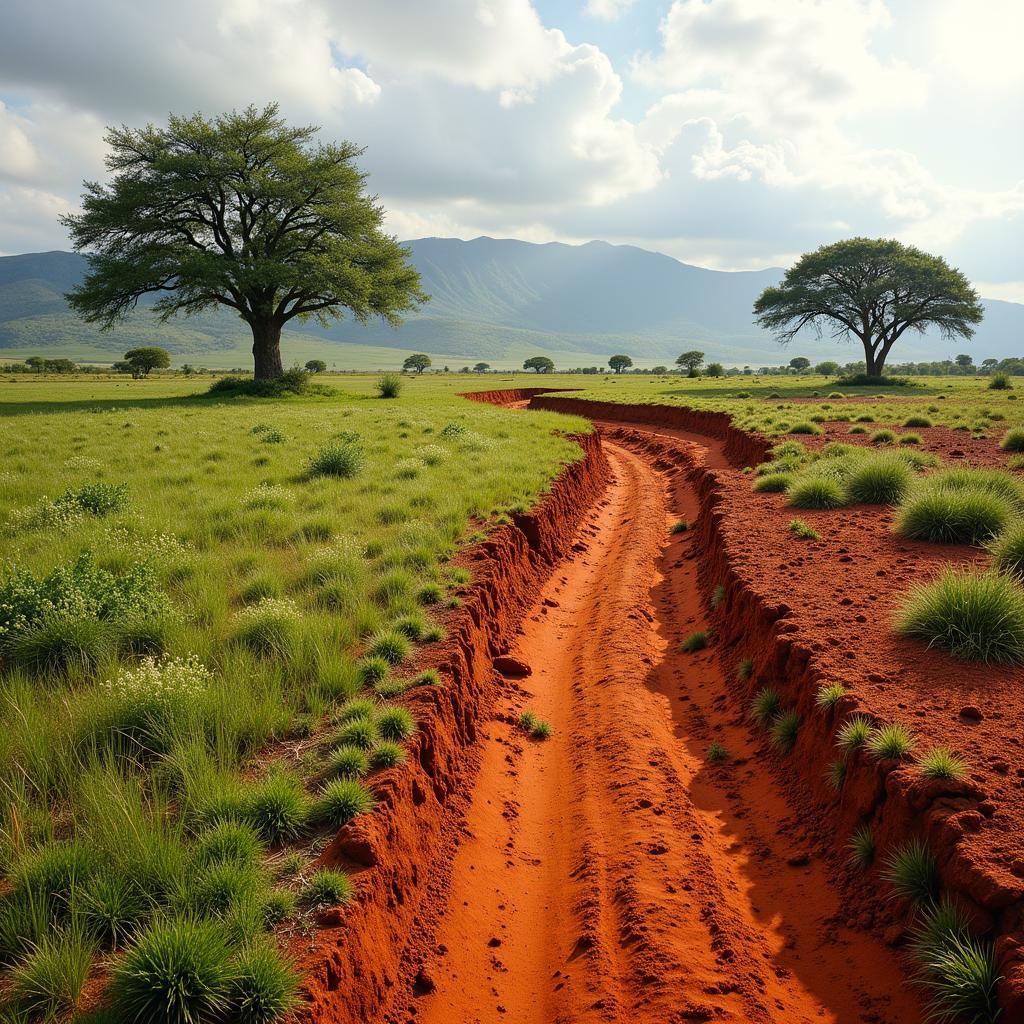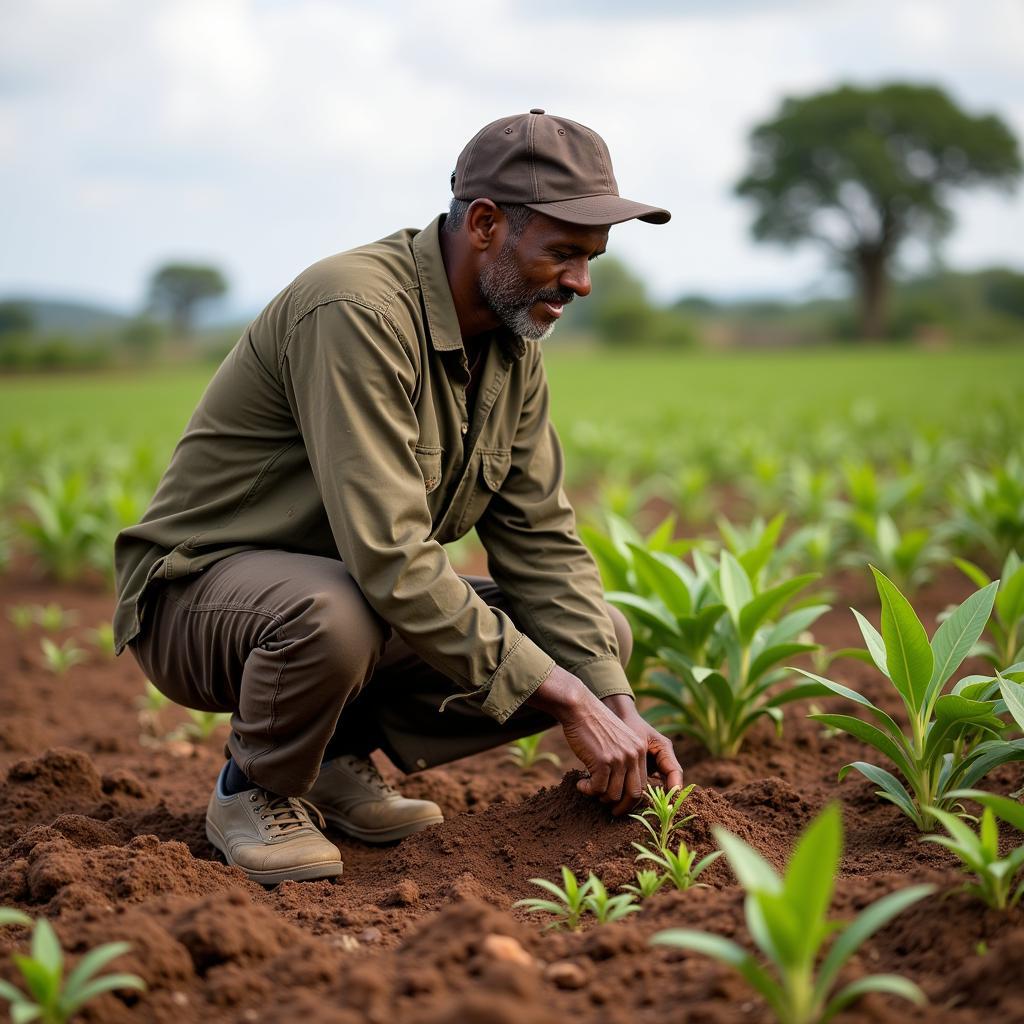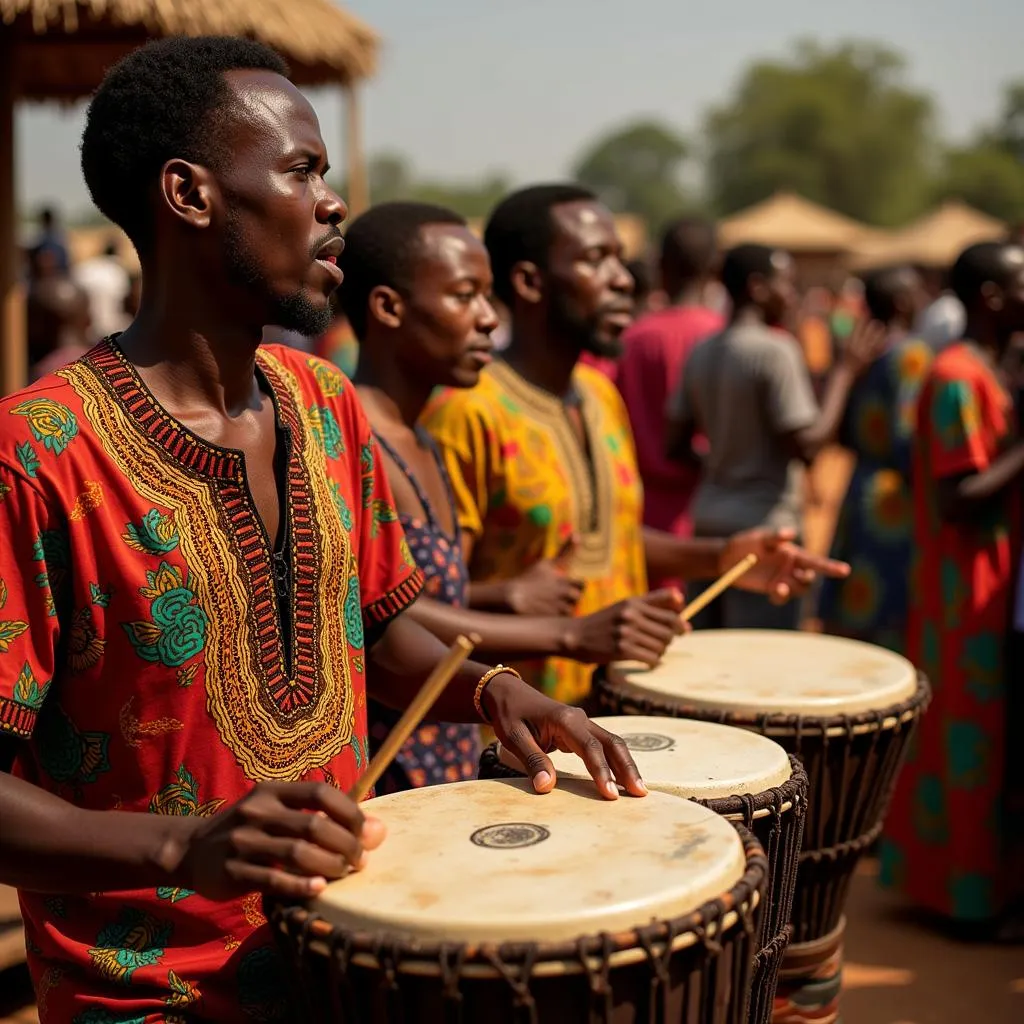Unveiling the Secrets of African Soil
African Soil, the foundation of a diverse and vibrant continent, holds within its depths a rich tapestry of stories. From the fertile volcanic plains to the arid savannas, the soil of Africa has shaped not only its ecosystems but also the lives and livelihoods of its people for millennia. This article delves into the fascinating world of African soil, exploring its characteristics, challenges, and the crucial role it plays in sustaining life.
A Tapestry of Soil Types
Across Africa, a vast and varied mosaic of soil types exists, each with its unique properties and agricultural potential. The continent’s diverse climate, topography, and geology have contributed to the formation of this intricate tapestry.
In the equatorial regions, where rainfall is abundant, heavily leached oxisols dominate. These ancient soils, often reddish in color due to high iron and aluminum oxide content, pose challenges for agriculture due to their low nutrient retention capacity. However, with proper management practices, they can support crops like oil palm and rubber.
Moving north and south from the equator, we encounter the vast savannas and grasslands, where alfisols and vertisols prevail. Alfisols, generally fertile and productive, support a wide range of crops, including maize, cotton, and tobacco. Vertisols, on the other hand, are characterized by their high clay content, which makes them prone to shrinking and swelling with changes in moisture. While challenging to work with, these soils can be highly productive for crops like rice and sorghum when managed appropriately.
In the arid and semi-arid regions of North and Southern Africa, aridisols dominate. These soils, often shallow and lacking in organic matter, face significant challenges due to water scarcity and wind erosion. However, they support pastoralism and the cultivation of drought-tolerant crops like millet and dates.
The fertile volcanic soils found in the East African Rift Valley and other volcanic regions are renowned for their agricultural productivity. Rich in nutrients and minerals, these soils support a wide variety of crops, including coffee, tea, and bananas.
 Diverse African Soil Types
Diverse African Soil Types
Challenges and Opportunities
While African soil holds immense potential for agriculture and food security, it also faces numerous challenges, including:
-
Soil degradation: Deforestation, overgrazing, and unsustainable agricultural practices have led to widespread soil degradation, resulting in reduced fertility, erosion, and desertification.
-
Climate change: Rising temperatures, erratic rainfall patterns, and extreme weather events exacerbate soil erosion, salinization, and desertification, threatening agricultural productivity and livelihoods.
-
Limited access to inputs and technologies: Many African farmers lack access to essential agricultural inputs, such as fertilizers and improved seeds, as well as modern technologies and knowledge that could enhance soil health and productivity.
 African Farmer Tending to Soil
African Farmer Tending to Soil
However, amidst these challenges lie opportunities to harness the potential of African soil:
-
Sustainable land management practices: Promoting and implementing sustainable land management practices, such as agroforestry, conservation agriculture, and crop rotation, can help restore soil health, enhance productivity, and build resilience to climate change.
-
Investing in research and development: Investing in agricultural research and development can lead to the development of climate-smart crops, improved soil management techniques, and innovative technologies that can optimize soil health and agricultural productivity.
-
Empowering farmers: Empowering smallholder farmers, particularly women and youth, through access to education, training, credit, and markets, is crucial for unlocking the potential of African soil and ensuring food security.
African Soil: A Foundation for the Future
The soil of Africa is not just a physical substrate but a living ecosystem teeming with life and a precious resource that underpins the continent’s present and future. By understanding its diversity, addressing the challenges it faces, and embracing sustainable solutions, we can unlock the full potential of African soil to nourish its people, support its economies, and contribute to a more sustainable and prosperous future for all.
FAQs
1. What is the most fertile soil type in Africa?
Volcanic soils, found in regions like the East African Rift Valley, are considered the most fertile due to their rich mineral content.
2. How does climate change affect African soil?
Climate change exacerbates soil erosion, salinization, and desertification through increased temperatures, erratic rainfall, and extreme weather events.
3. What are some sustainable land management practices for African soil?
Agroforestry, conservation agriculture, and crop rotation are examples of sustainable practices that can improve soil health and productivity.
4. Why is investing in agricultural research important for African soil?
Research can lead to climate-smart crops, improved soil management techniques, and innovative technologies that optimize soil health and productivity.
5. How can we empower farmers to better manage their soil?
Providing access to education, training, credit, and markets can empower farmers, particularly women and youth, to adopt sustainable soil management practices.
Looking for more insights on Africa’s natural wonders? Explore these fascinating articles:
Need expert advice on African soil management or have a specific question? Contact us at +255768904061, email us at [email protected] or visit us in Mbarali DC Mawindi, Kangaga, Tanzania. Our team is available 24/7 to assist you.



